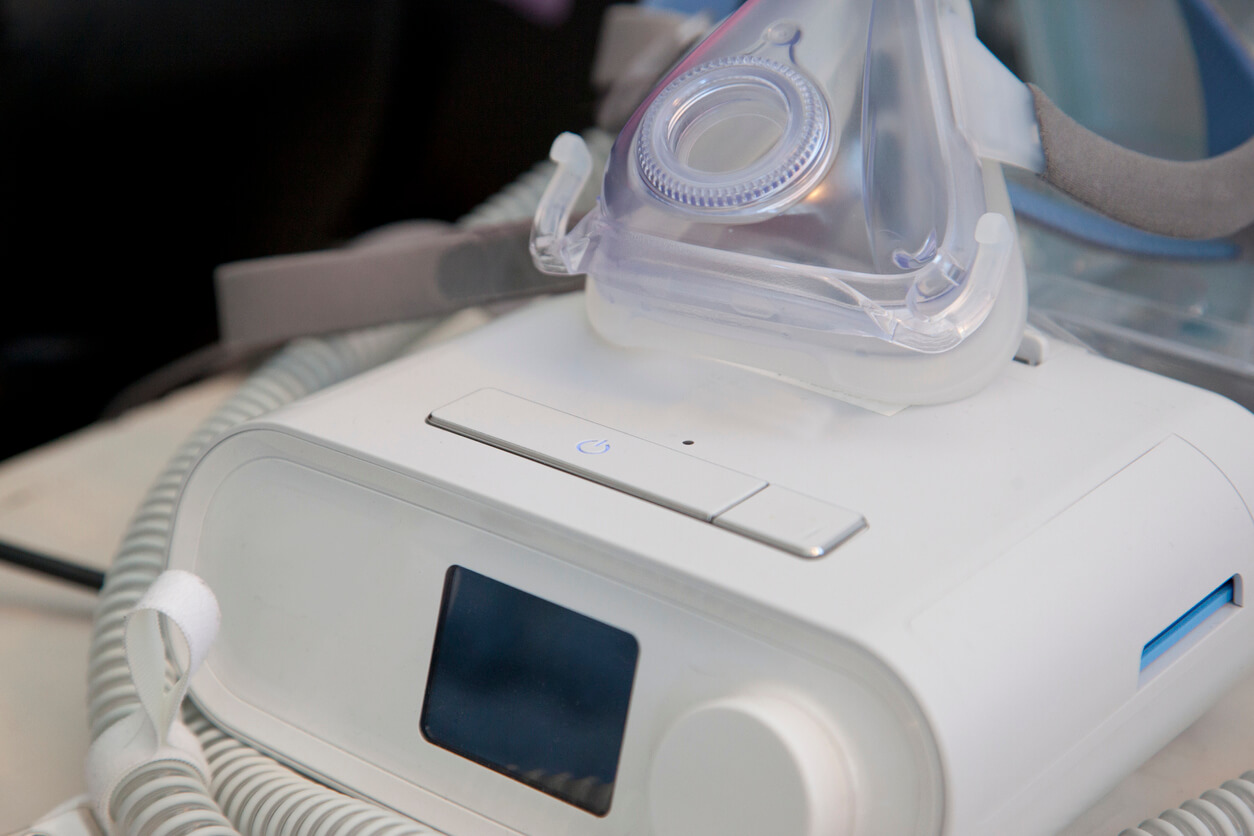Recalled Philips CPAP Machines Have Additional Foam Issues
Editors carefully fact-check all Drugwatch content for accuracy and quality.
Drugwatch has a stringent fact-checking process. It starts with our strict sourcing guidelines.
We only gather information from credible sources. This includes peer-reviewed medical journals, reputable media outlets, government reports, court records and interviews with qualified experts.

The U.S. Food and Drug Administration’s latest safety communication about the Philips CPAP machines recalled in June 2021 reports new issues with the devices.
A replacement silicone sound abatement foam may separate from the backing because of adhesive failure, the agency announced on Dec. 22.
The silicone foam is installed to replace the potentially hazardous PE-PUR foam that led to a recall. The replacement foam may separate and block the airpath. This may reduce airflow in the ventilator.
A blockage could also cause the device to alarm. If the patient does not act upon the alarm, they could experience trouble breathing, asphyxia, hypoventilation or hypoxemia. These events can be life-threatening.
After the Philips recall began in June 2021, patients filed CPAP lawsuits claiming exposure to the defective foam caused them to develop cancer and other illnesses.
Residual PE-PUR Foam Found in Reworked Philips Ventilators
Reworked or replaced BiPAP and CPAP machines are not impacted by this silicone foam issue. However, the reworked machines may present another issue.
The FDA discovered residual PE‐PUR sound abatement foam in reworked Trilogy 100 and Trilogy 200 ventilators that the company returned to patients. It found PE-PUR and environmental debris in some samples.
Exposure to PE-PUR foam may cause health risks. The foam can degrade and release particles and toxic gases into the device’s airways that patients may inhale or swallow. The resulting health effects may require medical attention to prevent permanent injury to patients.
In November 2022, Philips decided to temporarily pause reworking the Trilogy 100 and Trilogy 200 ventilators. The company had reworked and distributed nearly 14,000 Trilogy ventilators in the U.S. alone.
FDA Reports Large Number of CPAP Injuries
The FDA had received more than 90,000 medical device reports associated with recalled CPAP, BiPAP and ventilator machines by November 2022. That figure includes 260 reports of death.
Injuries reported include cancer, asthma, pneumonia, headache, infection, cough, breathing problems, dizziness, chest pain and more. The recalled devices may also cause unwanted side effects.
In October 2021, judges consolidated CPAP lawsuits throughout the U.S. into multidistrict litigation in Pennsylvania. According to the most recent numbers reported in October 2022, more than 340 lawsuits remain pending in Pennsylvania federal court.
The FDA recommended that patients who use recalled ventilators at home should not stop or change ventilator use until they speak with their doctor. The agency is currently conducting an assessment of the possible health risks of using reworked ventilators with silicone foam.
It is also reviewing Philips’ proposed strategy to fix the foam issue in reworked devices. It may take additional action to appropriately address the issues with Philips ventilators.